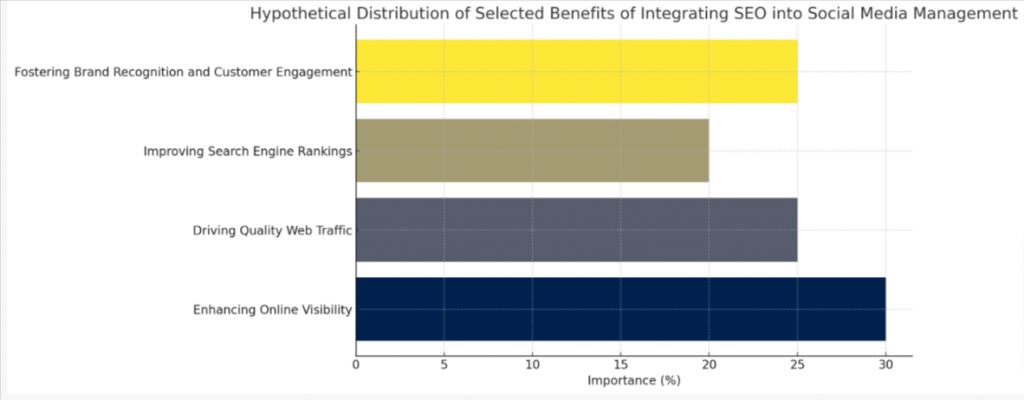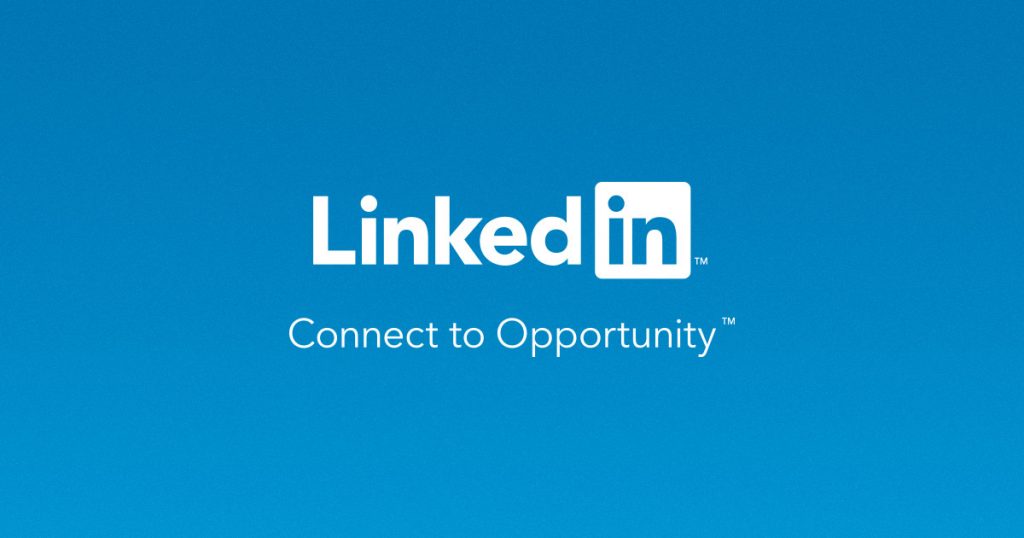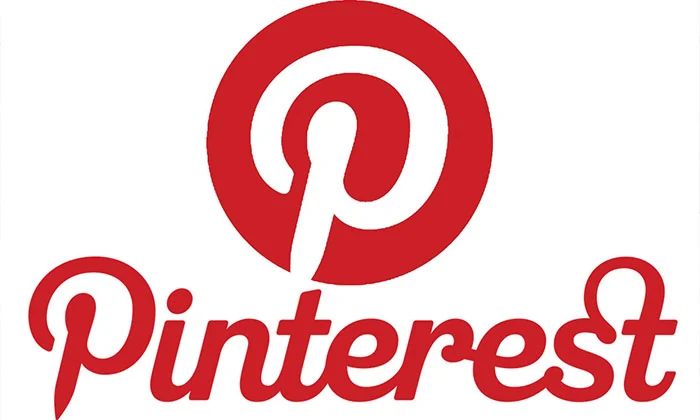Boosting Online Presence: The Importance of SEO in Social Media Management
Are you struggling to understand why SEO matters in managing your social media? You might be surprised that 58% of marketers who have been using social media for one year or longer vastly improve their search engine rankings.
This blog post will illuminate the crucial connection between SEO and social media, sharing practical recommendations on how to leverage both for better results. Ready to elevate your brand’s online allure? Let’s dive in!
Key Takeaways
- SEO and social media are closely interconnected, with 58% of marketers improving their search engine rankings by leveraging social media platforms.
- Social media enhances SEO efforts by increasing visibility, generating link opportunities, speeding up content indexing, identifying target audiences, and inspiring new content ideas.
- Social media plays a significant role in SEO ranking through social mentions impacting search rankings and viral articles influencing visibility on search engine results pages (SERPs).
- Integrating SEO into social media management is crucial for businesses to enhance online visibility, drive quality web traffic, improve search engine rankings, and foster brand recognition and customer engagement.
Understanding SEO and Social Media
SEO, or search engine optimization, is the practice of optimizing a website to improve its visibility and ranking in search engine results. Social media plays a crucial role in business by providing a platform for engagement and relationship building with customers.
Definition of SEO
SEO, or Search Engine Optimization, is a digital marketing strategy that focuses on improving a website’s visibility in organic search engine results. The primary goal of SEO is to attract more quality web traffic by optimizing elements on your site such as keywords, content, and backlinks for search engines like Google.
By doing so, it increases the chances of your site appearing in top search results when users look for certain queries related to your business. Additionally, it aids in establishing brand authority and exposure online.
In essence, an optimized website means easier discovery by potential customers and better rankings from search engines.
Importance of Social Media in Business
Social media has become a pivotal tool in the business world. It helps to increase brand exposure and recognition, often leading to an acceleration in sales. With its vast reach, businesses can interact directly with their target audience, which aids greatly in understanding customer needs and preferences.
This direct interaction also fosters better customer relationships through real-time communication channels available on social platforms like LinkedIn, Facebook or Twitter. Furthermore, social media indirectly drives quality web traffic by facilitating content sharing—a significant aspect of Search Engine Optimization (SEO).
As a consequence of this improved online visibility brought about by active engagement on social media platforms coupled with potent SEO practices, businesses experience growth and better search engine results performance for their websites.
The Connection Between SEO and Social Media
Social media has a significant impact on SEO and plays a crucial role in supporting SEO efforts.
The Impact of Social Media on SEO
Social media platforms are powerful tools that significantly impact SEO strategy. The more engagement a piece of content receives in likes, shares, and comments on social media, the higher it tends to rank on search engine results pages.
This relationship exists because popular posts signal to search engines that users find the content valuable and relevant.
Additionally, Google crawls and indexes social media profiles and pages – just like websites. Therefore, well-optimized accounts can potentially compete for similar keywords as your website does.
Having a strong presence on high-profile sites such as Facebook, Instagram or Twitter increases your brand’s online visibility exponentially. A broader keyword spread also leads to increased chances of appearing in SERPs (Search Engine Results Pages).
Over time, this enhanced visibility contributes positively towards your business’s organic rankings.
Moreover, regular activity on these social platforms helps ensure web spiders note the fresh content linked from there to a site quickly enhancing its indexing speed further improving SEO efforts.
Keeping profiles rich with accurate information is crucial for local SEO too; just another way how having an active account contributes towards supporting overall digital marketing goals.
Finally yet importantly, when you share quality materials –articles or blogs– through various channels like Facebook or LinkedIn etc., doing so attracts more clicks leading those browsers directly onto your website boosting traffic figures which again indirectly improves its ranking position affirming the role of Social Media in influencing a place’s search ability status around the globe.
How Social Media Supports SEO Efforts
Social media bolsters SEO efforts in a multitude of ways, enhancing brand recognition and offering a powerful platform for content distribution. It creates an avenue for businesses to share high-quality content, which encourages user engagement through likes, shares and comments – social signals that Google’s algorithm takes into account when ranking websites.
Increased online visibility also comes with more backlinks as other websites often link to popular content found on social channels. Additionally, these platforms provide enhanced exposure where consumers can easily discover new brands.
Each share or mention of your business increases the chances of reaching potential customers who might be interested in your products or services. This constant interaction not only builds authority but it also drives quality web traffic to your website, improving its organic rankings on search engine results pages (SERPs).
Furthermore, platforms like LinkedIn and Pinterest can appear directly in search results themselves, showcasing another aspect of how social media supports SEO efforts by extending reach beyond traditional search engines.
Remember: this paragraph does not begin with “When”, “By” or “Remember”.
How Social Media Enhances SEO Results
Social media enhances SEO results through increased visibility and link opportunities, faster content indexing speed, audience identification for SEO content, generation of new content ideas, and driving traffic while waiting for SEO results.
Increased Visibility and Link Opportunities
Pages with more social shares often rank higher on search engine results pages. This means that when your content is shared on social media platforms, it increases its visibility and the chances of it being discovered by a larger audience.
When people share your content, they are essentially spreading the word about your brand and driving more traffic to your website. Additionally, social media profiles and posts have the potential to rank at the top of search engine results pages when relevant keywords are incorporated naturally into the content.
This provides another avenue for increased visibility and link opportunities as users searching for related topics may come across your social media profiles or posts, leading them to visit your website through provided links or mentions.
Content Indexing Speed
Social media shares play a crucial role in the speed at which search engines index content. Pages that receive more social shares tend to have faster indexing speeds, making it essential for businesses to focus on increasing social media engagement.
Social media sites with robust search engine functionalities can also appear quickly in search results, further enhancing content indexing speed. Additionally, Google crawls and indexes social media profiles and pages, which directly impacts the rate at which content is indexed.
By prioritizing social media activity and encouraging user engagement, businesses can ensure their content gets indexed swiftly and reaches a wider audience.
Audience Identification for SEO Content
Effective audience identification is crucial in creating SEO content that resonates with your target demographic. By understanding who your audience is, you can tailor your content to meet their interests, needs, and preferences.
This information enables you to incorporate relevant keywords and topics that will attract the right kind of traffic to your website. Additionally, identifying your audience allows you to personalize your messaging and create a more engaging experience for visitors.
Remember, quality web traffic generated from knowing your audience leads to increased visibility on search engine results pages and higher rankings for your website.
Generation of New Content Ideas
Creating fresh and engaging content is essential for both SEO and social media success. When it comes to generating new content ideas, there are several effective strategies you can use.
One approach is to conduct keyword research to identify popular topics or trends that your target audience is searching for. By understanding their needs and interests, you can create content that resonates with them.
Additionally, monitoring industry news and staying updated on relevant discussions in your niche can help spark new ideas for blog posts, videos, infographics, and more. Another way to generate fresh content ideas is by repurposing existing high-performing pieces into different formats or exploring related subtopics within your niche.
Traffic Drive While Waiting for SEO Results
Social media can play a crucial role in driving traffic to your website while you wait for SEO results. When you share valuable content on social platforms, it can attract the attention of your target audience and encourage them to visit your site.
Moreover, when people engage with your social posts by liking, sharing, or commenting, it increases the visibility of your content and drives more traffic to your website. In fact, pages with more social shares tend to rank higher on search engine result pages (SERPs), leading to increased organic traffic.
By leveraging the power of social media, you can generate quality web traffic and maintain a strong online presence even before SEO efforts start showing significant results.

Role of Social Media in SEO Ranking
Social media plays a crucial role in SEO ranking, with social media mentions and viral articles impacting search rankings while serving as a Google ranking factor.
Social Media Mentions and Rankings
Social media mentions and rankings play a significant role in the world of SEO. Search engines like Google consider social signals, such as shares, likes, and comments, when determining a website’s ranking.
Pages that receive more social shares often rank higher on search engine results pages (SERPs). Moreover, online discussions and mentions about a brand can directly impact its search rankings.
This is why it’s crucial for businesses to actively engage with their audience on social media platforms to improve their visibility and attract more organic traffic to their website.
Viral Article Impact on Rankings
Viral articles can have a significant impact on search engine rankings. When an article goes viral, it gets shared and talked about by a large number of people, which increases its visibility and reach.
As mentioned earlier, search engines like Google take social signals into account when determining website rankings. Websites with viral articles that receive a high number of shares often rank higher on search engine results pages.
This is because search engines consider the popularity and engagement of an article as indicators of its quality and relevance to users. So, if you want to boost your website’s rankings, creating viral content is definitely worth considering.
Social media plays a crucial role in making articles go viral. According to important facts about social media and SEO, online discussions and mentions about a brand can directly affect search rankings.
By actively promoting your articles on social media platforms such as Facebook or Twitter, you increase their chances of going viral and reaching a wider audience. Additionally, the more people share your article on social media sites, the more backlinks it generates for your website – another important factor that influences search engine rankings.
Social Media as a Google Ranking Factor
Social media plays a significant role as a Google ranking factor. Search engines like Google take into account various social signals, such as likes, shares, and comments on social media posts, to determine the authority and relevance of a website.
Pages with more social shares tend to rank higher on search engine results pages (SERPs). Additionally, online mentions and discussions about a brand on social media can impact its search rankings.
Therefore, it is crucial for businesses to actively engage with their audience on social media platforms in order to improve their visibility and increase their chances of ranking well in Google’s algorithm.
Best Social Media Platforms for SEO
LinkedIn, Medium, Facebook, Twitter, Pinterest, and Quora are among the best social media platforms for SEO.

LinkedIn is widely recognized as one of the best social media platforms for SEO. When it comes to search engine rankings, pages that receive more social shares on LinkedIn tend to rank higher on search engine results pages.
Additionally, brand mentions and discussions on LinkedIn can have a direct impact on search rankings. With its robust search engine functionalities, LinkedIn has the potential to appear in search results and achieve high rankings on SERPs.
By leveraging LinkedIn for SEO purposes, businesses can indirectly enhance brand recognition, reputation management efforts, and local SEO endeavors (IMPORTANT FACTS 1-5).
Medium
Medium is a popular social media platform that allows users to publish various types of blog content. With its large audience, Medium can greatly improve exposure and rankings on search engine results pages.
When users share their content on Medium, it indirectly impacts SEO by driving quality web traffic to their website. Additionally, Medium provides an opportunity for online mentions and discussions about a brand, which can positively impact search rankings.
By incorporating keywords naturally into their content, users can potentially rank at the top of search engine results pages with the help of Medium’s platform. Overall, Medium is a valuable tool for SEO as it offers visibility, engagement, and potential increases in sales through digital marketing efforts.
Facebook is considered one of the best social media platforms for SEO. It allows search engines like Google to crawl and index its pages, which means that businesses have an opportunity to appear in search results and drive traffic to their websites.

By strategically linking blog posts to Facebook, businesses can lead their target audience from one marketing channel to another. Additionally, making content easily shareable on Facebook can drive more traffic and increase visibility.
Engaging with the audience through great content on Facebook can also boost follower count and improve search rankings.
Twitter is considered one of the best social media platforms for SEO, and it plays a crucial role in boosting website rankings. Social media shares on Twitter can have a positive impact on search engine optimization efforts.
Additionally, online mentions and discussions about a brand on Twitter can influence search rankings. This is because Twitter’s search engine functionalities allow it to rank high on search engine results pages, improving the visibility of your content.
Furthermore, the social signals generated through Twitter contribute to building trust, customer loyalty, and brand awareness. Utilizing Twitter effectively as part of your SEO strategy can bring significant benefits to your business’s online presence.
Pinterest is considered one of the best social media platforms for SEO in social media management. With its robust search engine functionalities, Pinterest functions as both a social media platform and a search engine, attracting over 2 billion searches every month.
This means that your content on Pinterest has the potential to rank high on SERPs and appear in search results. Social signals such as shares, likes, and comments on Pinterest can positively impact website rankings and drive quality web traffic to your site.
By utilizing Pinterest effectively, you can share valuable content that resonates with your target audience and enhances your overall SEO efforts.

Quora
Quora is widely regarded as one of the best social media platforms for boosting SEO efforts. It offers a unique opportunity to engage with users who are actively seeking information and asking questions related to specific topics.
This aligns perfectly with user search intent and allows businesses to provide valuable answers that contain relevant keywords. By consistently participating in discussions on Quora, brands can establish themselves as authoritative sources and increase their visibility in search engine results pages.
Additionally, by including links back to their website or blog within their answers, businesses can generate traffic and potentially acquire new leads and customers through this platform.
Simple Best Practices for Boosting SEO Rankings via Social Media
Learn how to publish high-quality content, optimize your social media profiles, and build relationships through active conversations to boost your SEO rankings. Read more to discover effective strategies for leveraging social media for SEO success.
Publishing High-Quality Content
Publishing high-quality content is crucial for boosting SEO rankings through social media. When you consistently create valuable and informative content, it not only attracts your target audience but also encourages them to engage with your brand.
Valuable content can include blog posts, videos, infographics, and podcasts that provide relevant information and address the needs of your audience. By sharing this high-quality content on social media platforms, you can drive traffic to your website and increase the chances of social shares.
Remember, when people find value in your content, they are more likely to share it with others, ultimately increasing its reach and visibility on search engine results pages.
Making Content Sharing Easy for Users
To make content sharing easy for users, businesses should implement user-friendly features and tools on their website and social media platforms. Incorporating social share buttons on blog posts, articles, and other content pages allows users to easily share the content with their own networks.
Additionally, providing clear calls-to-action that encourage users to share the content can greatly increase its visibility and reach. By making it effortless for users to share valuable content, businesses can tap into the power of social signals and drive more traffic to their website while improving their SEO rankings.
Optimizing Social Media Profiles
Optimizing social media profiles is a crucial step in boosting organic traffic to a website through search engines. By optimizing various elements of your social media profiles, such as the bio, profile picture, and cover photo, you can improve your visibility in search engine results.
When search engines like Google crawl and index social media pages from platforms like Facebook, Twitter, and LinkedIn, they take into account the information provided on these profiles.
Therefore, it’s essential to include relevant keywords and compelling descriptions that accurately represent your business or brand.
Additionally, optimizing social media profiles helps with content indexing speed. Search engine spiders treat social media content differently than regular website content, often indexing it faster due to its frequent updates and high user engagement.
By ensuring that your profiles are fully optimized with appropriate keywords and hashtags related to your niche or industry, you increase the chances of getting your social posts indexed by search engines.
Optimizing Images for SEO and Social
Optimizing images for SEO and social media is crucial for driving organic traffic to a website. By using relevant keywords in image file names and adding alt text, you can ensure that search engines recognize the content of your images.
Additionally, including relevant surrounding text with your images further optimizes them for search engines. On social media platforms, properly formatted and visually appealing images have a higher chance of being shared by users.
Encouraging social sharing of these optimized images helps reach a larger audience and increases visibility across various social networks.
Building Relationships Through Active Conversations
Active conversations on social media are an effective way to build relationships with your audience. By engaging in meaningful discussions and responding promptly to comments and messages, you can establish trust and credibility with your followers.
This not only encourages them to become loyal customers but also increases the likelihood of them sharing your content with their own networks. Building relationships through active conversations on social media can boost local SEO efforts as well, as it signals to search engines that people find value in your content and engage with it regularly.
So, make sure to actively participate in relevant conversations on platforms such as Twitter, LinkedIn, or Facebook to foster strong connections with your audience while improving your SEO rankings at the same time.
How SEO Enriches Social Media
SEO enriches social media by guiding content creation through keyword research, enabling social search success with SEO best practices, and enhancing social performance and tracking through technical SEO.
Discover how these strategies can boost your brand’s online visibility and engagement. Read more to unleash the power of combining SEO and social media for better results.
Keyword Research Guides Content Creation
Keyword research plays a crucial role in guiding the creation of content. By conducting thorough keyword research, marketers can identify the specific terms and phrases that their target audience is using to search for information online.
This insight allows them to tailor their content to match what their audience is looking for, increasing the chances of appearing in relevant search results. Keyword research also helps in understanding user intent, allowing marketers to create content that aligns with what users are seeking.
With this valuable information at hand, content creators can craft compelling and informative pieces that engage readers and drive organic traffic to their websites.
In addition, keyword research enables businesses to uncover new topic ideas by identifying related keywords or trending topics within their industry. By exploring these areas of interest through keyword research tools, marketers can discover fresh perspectives or unique angles to incorporate into their content strategy.
SEO Best Practices Enable Social Search Success
SEO best practices are essential for achieving social search success. By implementing effective SEO strategies, businesses can increase their online visibility and improve their rankings on search engine results pages (SERPs).
This means that when users search for relevant keywords or topics on platforms like Google and Bing, they are more likely to discover and engage with content from brands that have optimized their websites according to SEO guidelines.
SEO best practices also help in building credibility and authority in the eyes of both search engines and users. By focusing on factors such as keyword research, content optimization, link building, and user experience, businesses can enhance their social media presence and drive organic traffic to their websites.
Technical SEO Enhances Social Performance and Tracking
Technical SEO plays a crucial role in improving social media performance and tracking. By optimizing the technical aspects of a website, such as page load speed and mobile responsiveness, it becomes easier for users to navigate and engage with social media content.
This enhanced user experience leads to increased engagement, higher click-through rates, and ultimately more conversions. Additionally, technical SEO allows for better tracking of social media metrics through tools like Google Analytics, giving businesses valuable insights into the effectiveness of their social media marketing efforts.
With technical SEO in place, businesses can optimize their social media strategy for maximum impact and achieve better results in terms of brand visibility and customer engagement.
Combining SEO and Social Media for Better Results
Combining SEO and social media allows for improved results by aligning content and social media teams, optimizing SEO content for sharing, cross-promoting on both channels, encouraging post sharing, and utilizing two-way retargeting.
Aligning Content and Social Media Teams
Aligning content and social media teams is a crucial step towards improving SEO and social media results. By bringing these two teams together, businesses can ensure that their content strategy aligns with the goals of their social media efforts.
This collaboration allows for the creation of high-quality, relevant content that resonates with the target audience and attracts organic traffic. When content creators work closely with social media managers, they can optimize their content for sharing on various platforms, increasing its visibility and reach.
Additionally, this alignment enables better tracking and analysis of engagement metrics, such as likes, comments, and shares, helping businesses understand what types of content perform best on different social platforms.
Sharing SEO Content on Social Media
Sharing SEO content on social media is a powerful strategy to increase brand exposure and positively impact search engine optimization. When you share your SEO-optimized content on platforms like Facebook, Twitter, LinkedIn, and Pinterest, it can reach a wider audience and generate more social signals such as likes, comments, and shares.
These social signals are crucial ranking factors used by search engines like Google to determine the credibility and relevance of a website. In fact, pages with higher social shares often rank higher on search engine results pages.
This means that sharing your SEO content on social media platforms not only boosts your brand’s visibility but also improves your chances of ranking higher in organic search results.
Optimizing SEO Content for Sharing
Optimizing SEO content for sharing on social media is essential to reach a wider audience and drive more traffic to your website. By optimizing your content, you increase the chances of it being shared by users, which can have a positive impact on brand exposure and search engine optimization.
Websites with more social shares tend to rank higher in search engine results pages, as online discussions and mentions about a brand can influence search rankings. Additionally, social media indirectly affects SEO by driving high-quality traffic to your website.
Therefore, by strategically optimizing your SEO content for sharing on social media platforms, you can effectively enhance your online visibility and attract more potential customers.
Cross-Promoting on SEO and Social Channels
Cross-promoting on SEO and social channels is a powerful strategy that involves linking blog posts from different marketing platforms to direct the target audience to other platforms.
By sharing content across various channels, businesses can expand their reach and increase website traffic. For example, creating a viral video on Facebook and then boosting an article to those who engaged with the video can generate targeted traffic to a website.
Additionally, pulling out important quotes from blog posts and creating links that auto-share these quotes on social media increases sharing frequency and sends strong signals to search engines.
Encouraging People to Share Posts
One of the key strategies for enhancing the reach and impact of your content is to actively encourage people to share your posts on social media platforms. By creating compelling and valuable content, you can motivate your audience to spread the word about your brand or message.
When people share your posts, it increases the visibility and exposure of your content, reaching a wider audience beyond just your immediate followers. Moreover, social shares have been found to positively impact search engine rankings, helping you climb higher in search results pages.
So by implementing share buttons, calls-to-action, and other techniques that facilitate sharing, you can tap into the power of social media amplification and attract more attention to your brand or business.
By encouraging people to share not only expands the reach but also helps generate engagement signals—such as likes, comments, and conversions—that play a crucial role in building credibility and authority online.
These engagement signals are closely monitored by search engines like Google when determining ranking positions. Additionally, when others see their connections sharing something they find valuable or interesting on social media platforms, they are more likely to click through and engage with it themselves.
Utilizing Two-Way Retargeting
Utilizing two-way retargeting is a powerful strategy that combines the benefits of both SEO and social media to enhance brand visibility and drive targeted traffic. With two-way retargeting, you can reach out to potential customers who have already shown interest in your products or services through their online behavior.
By strategically placing tracking pixels on your website and social media platforms, you can create custom audiences for both SEO and social media campaigns. This means that visitors who have interacted with your website can be retargeted through social media ads, while those who engage with your content on social media can also be retargeted with relevant offers or promotions on your website.
This two-way approach increases the chances of conversion by effectively reaching out to potential customers wherever they are in their buyer’s journey. So, make sure to leverage the power of two-way retargeting for an integrated marketing strategy that maximizes ROI and drives business growth.
Conclusion
In conclusion, integrating SEO into social media management is essential for businesses looking to increase their online visibility and drive quality web traffic. By optimizing content, leveraging social signals, and utilizing the right platforms, companies can improve their search engine rankings and expand their brand reach.
Ultimately, combining SEO and social media strategies leads to better results in terms of brand recognition, customer engagement, and business growth.

